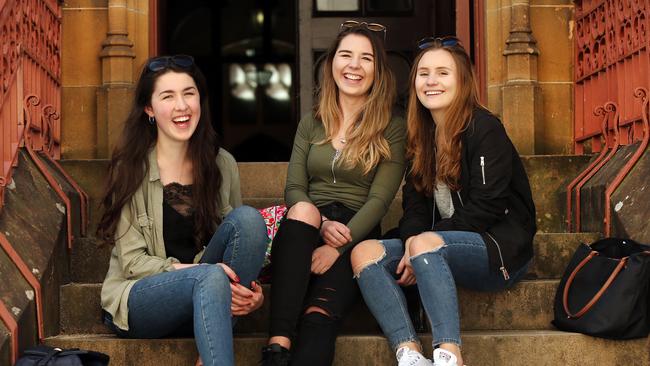New study shows today’s 18-year-olds less likely to date, have a job or have sex
TEENS are growing up more slowly these days — with new research showing that the behaviour of today’s 18-year-olds more closely mirrors that of a typical 15-year-old in previous decades.

NSW
Don't miss out on the headlines from NSW. Followed categories will be added to My News.
- $50,000 in grants to encourage teenagers to be active
- Teenage girls face epidemic of chronic health conditions
TEENS are growing up more slowly these days — with new research showing that the behaviour of today’s 18-year-olds more closely mirrors that of a typical 15-year-old in previous decades.
They are less likely to date, have a job, leave the house without their parents, drive or have sex, a landmark US study comparing more than eight million teens between 1976 and 2016 found.

“Over-protective” parents and growing internet usage were factors in the “considerable” behavioural changes over the decades, with one child expert describing the trend as the “wussification of a generation”.
The trend was so pronounced that by the early 2010s, students aged 17 to 18 went out on dates about as often as 15 to 16-year-olds used to in the early ‘90s.
The research, published in Child Development, found just leaving the home without mum or dad was a less common experience for today’s average 18-year-old than for an eighth-grade student (aged 13 or 14) of the early 1990s. “Having sex went from being the majority experience for high school students to the minority experience,” research author Professor Jean Twenge said. “The developmental trajectory of adolescence has slowed, with teens growing up more slowly than they used to.
“In terms of adult activities, 18-year-olds now look like 15-year-olds once did.”
Back in 1976 more than 85 per cent of 17 and 18-year-olds had dated; by 2014 that had dropped to less than 60 per cent.
READ MORE: TURNBULL TAKES ON TEEN PREGNANCY UNEMPLOYMENT
Australian experts agree with the “snowflake” hypothesis, arguing over-protective parents are delaying their children’s maturity.
The Bonsai Child author and psychologist Dr Judith Locke said her clinical experience of treating adolescents mirrored the US findings.
“Parents are much more involved in their children’s lives, so the teens have less opportunities to learn how to be an adult,” she said. “The mobile phone has been described as the world’s “longest umbilical cord”.
Child expert Dr Michael Carr-Gregg, who has just published a book on the “boofhead syndrome” of Australian teen boys, said the phenomena was happening in Australia with the “wussification of a generation”. He said parents should “stop being so worried about (their children’s) happiness and self-esteem so much, but actually allow them to experience an adversity, to take some healthy risks.”
Sydney University student Alice Roberts, 19, said while she understood while some milestones might occur later because more people were studying for longer, she still felt teens were keen to gain independence as soon as possible. “When I was 15 about half the girls in the class would have had boyfriends,” she said.



